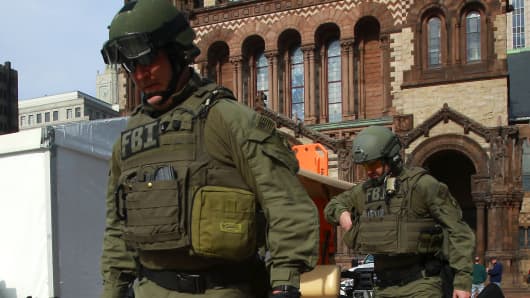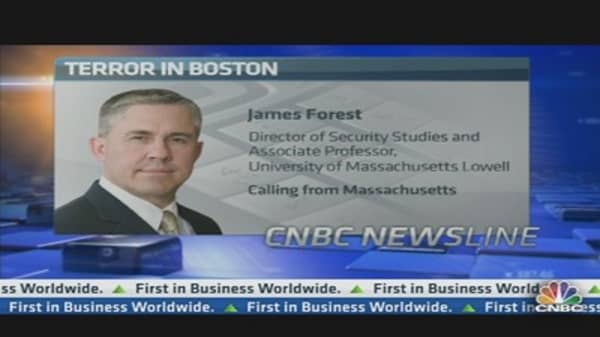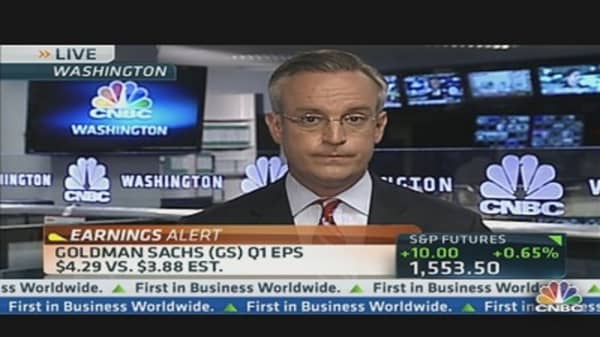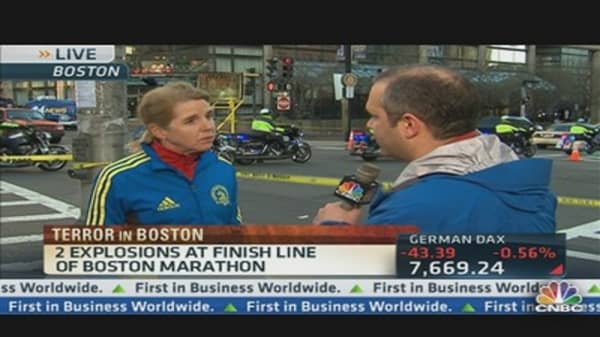"We're seeing a lot of shrapnel injuries" from small metal debris, Fagenholz told reporters outside the hospital. Doctors treated 29 people, of whom eight were in a critical condition.
An 8-year-old boy was among the dead, The Boston Globe reported, citing two law enforcement sources briefed on the investigation. A 2-year-old was being treated at Boston Children's Hospital for a head wound, the hospital said.
Major Cities on Alert
The blasts put police on alert in major cities across the United States, including Washington and New York, the sites of the Sept. 11 attacks.
The annual Boston Marathon, held since 1897, attracts an estimated half-million spectators and some 20,000 participants every year.
In Britain, organizers said the London Marathon would go ahead on Sunday despite the Boston attack, but security was being reviewed.
The Madrid Marathon also planned to proceed on Sunday, but security plans were under review, a Spanish official said.
"After what happened in Boston we'll have to look into whether we need to review our plans. Since yesterday we are coordinating with municipal security and local government," Pedro Rumbao, director of the Madrid marathon, told Spanish National Radio.
German Chancellor Angela Merkel joined world leaders in condemning the blasts.
"Nothing can justify such an insidious attack on people who had come together for a peaceful sports event. I hope that the person or people guilty (of this attack) can be brought to justice," she said in a statement.
The fiery explosions took place about 10 seconds and about 100 yards apart, knocking spectators and at least one runner off their feet, shattering windows and sending dense plumes of smoke rising over the street and through the fluttering national flags lining the route.
Blood stained the pavement, and huge shards were missing from window panes as high as three stories. Victims suffered broken bones, shrapnel wounds and ruptured eardrums.
Roupen Bastajian, a state trooper from Smithfield, R.I., had just finished the race when he heard the explosions.
"I started running toward the blast. And there were people all over the floor," he said. "We started grabbing tourniquets and started tying legs. A lot of people amputated. ... At least 25 to 30 people have at least one leg missing, or an ankle missing, or two legs missing."
Hospitals reported at least 144 people injured, at least 17 of them critically. At least eight children were being treated at hospitals.
At Massachusetts General Hospital, Alasdair Conn, chief of emergency services, said: "This is something I've never seen in my 25 years here ... this amount of carnage in the civilian population. This is what we expect from war."






